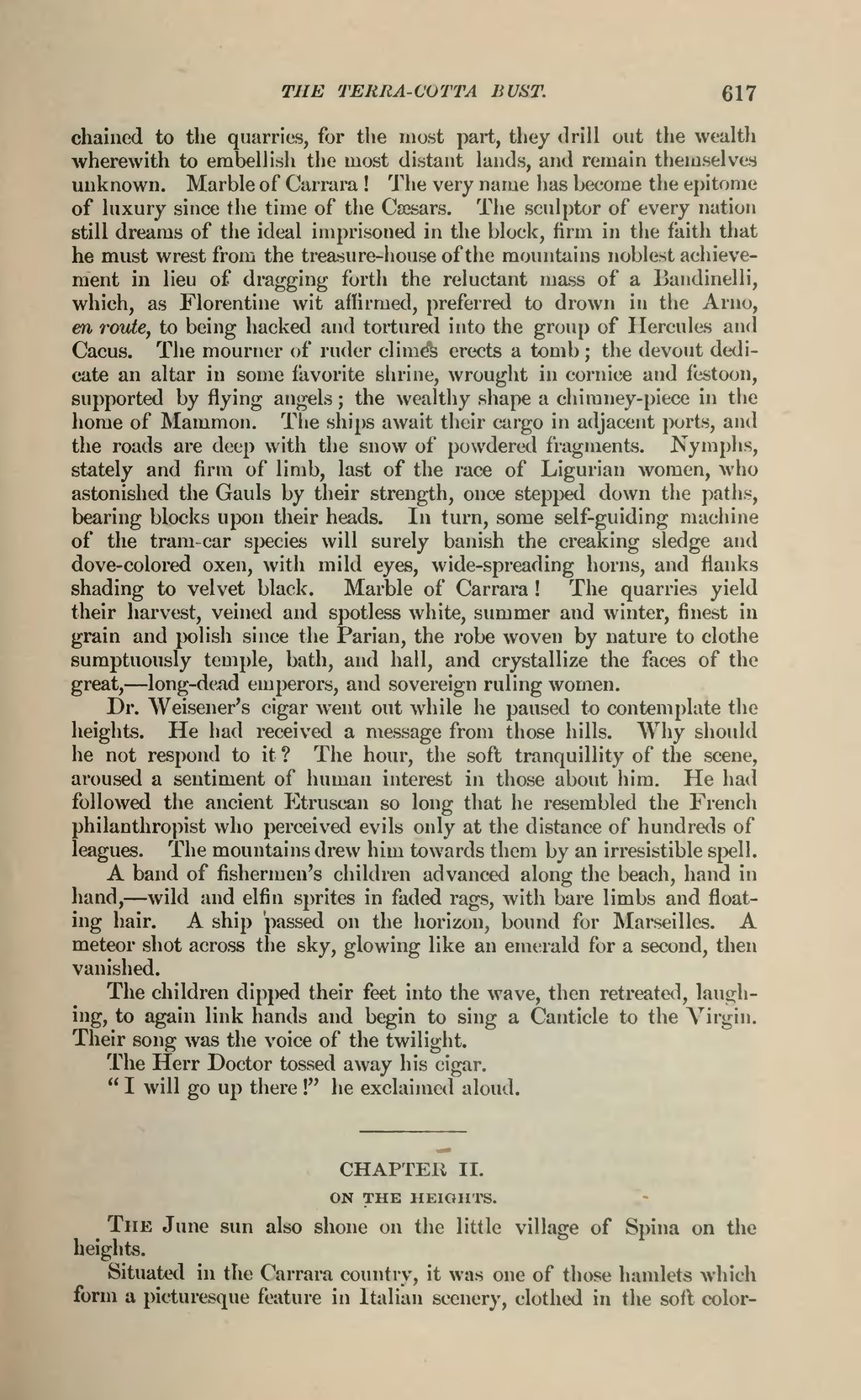chained to the quarries, for the most part, they drill out the wealth wherewith to embellish the most distant lands, and remain themselves unknown. Marble of Carrara! The very name has become the epitome of luxury since the time of the Caesars. The sculptor of every nation still dreams of the ideal imprisoned in the block, firm in the faith that he must wrest from the treasure-house of the mountains noblest achievement in lieu of dragging forth the reluctant mass of a Bandinelli, which, as Florentine wit affirmed, preferred to drown in the Arno, en route, to being hacked and tortured into the group of Hercules and Cacus. The mourner of ruder climes erects a tomb; the devout dedicate an altar in some favorite shrine, wrought in cornice and festoon, supported by flying angels; the wealthy shape a chimney-piece in the home of Mammon. The ships await their cargo in adjacent ports, and the roads are deep with the snow of powdered fragments. Nymphs, stately and firm of limb, last of the race of Ligurian women, who astonished the Gauls by their strength, once stepped down the paths, bearing blocks upon their heads. In turn, some self-guiding machine of the tram-car species will surely banish the creaking sledge and dove-colored oxen, with mild eyes, wide-spreading horns, and flanks shading to velvet black. Marble of Carrara! The quarries yield their harvest, veined and spotless white, summer and winter, finest in grain and polish since the Parian, the robe woven by nature to clothe sumptuously temple, bath, and hall, and crystallize the faces of the great,—long-dead emperors, and sovereign ruling women.
Dr. Weisener's cigar went out while he paused to contemplate the heights. He had received a message from those hills. Why should he not respond to it? The hour, the soft tranquillity of the scene, aroused a sentiment of human interest in those about him. He had followed the ancient Etruscan so long that he resembled the French philanthropist who perceived evils only at the distance of hundreds of leagues. The mountains drew him towards them by an irresistible spell.
A band of fishermen's children advanced along the beach, hand in hand,—wild and elfin sprites in faded rags, with bare limbs and floating hair. A ship passed on the horizon, bound for Marseilles. A meteor shot across the sky, glowing like an emerald for a second, then vanished.
The children dipped their feet into the wave, then retreated, laughing, to again link hands and begin to sing a Canticle to the Virgin. Their song was the voice of the twilight.
The Herr Doctor tossed away his cigar.
"I will go up there!" he exclaimed aloud.
CHAPTER II.
ON THE HEIGHTS.
The June sun also shone on the little village of Spina on the heights.
Situated in the Carrara country, it was one of those hamlets which form a picturesque feature in Italian scenery, clothed in the soft color-
